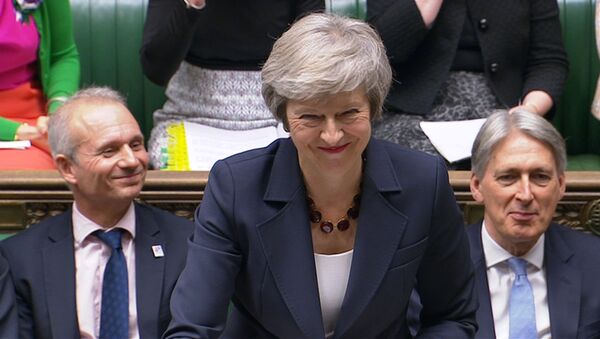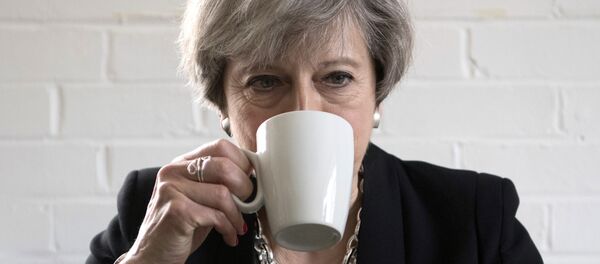Amid continued pressure from some Tory MPs for last-minute changes to the deal, May said that the Chequers roadmap would prevent EU migrants from ‘jumping the queue,’ the BBC reported.
Two cabinet ministers have already resigned over the proposed agreement, while others are believed to be trying to change its wording.
She will tell them that her plan will provide a fair immigration system that will help young people in the UK get jobs and training.
She will also say that "instead of a system based on where a person is from, we will have one that is built around the talents and skills a person has to offer”.
She will also say that she is not going to reopen discussions with Brussels over the withdrawal agreement now that “the core elements of that deal are already in place".
The draft plan sets out the terms of Britain’s withdrawal from the bloc, including its financial contributions to the EU budget, details of the transition period, and citizens' rights.
The transition period — which lasts until 31 December 2020 — will mean the UK is officially out of the EU, but is still abiding by most of its rules. During this time, the two sides hope to negotiate a permanent trade deal.
Meanwhile, with ministers from the remaining 27 EU countries meeting in Brussels ahead of the deal being finalised on Sunday, EU Brexit negotiator Michel Barnier has proposed extending the period during which Britain will stay in the EU Single Market and Customs Union by a maximum of two years.
During this time Britain will have to accept the free movement of people and agree to contribute an annual £10 billion [$12.8] a year to the bloc’s consolidated budget.
At their meeting with Barnier on Sunday, most European ambassadors agreed to make New Year’s Eve 2022 as a final end date for the transition.
On Sunday night, London dismissed reports that it was ready to accept the proposed date, saying that it “hasn’t been agreed yet”.
On Monday, Business Secretary Greg Clark said, however, that Britain could ask for a longer Brexit transition period if needed.
"It would be our discretion, it would be purely for us if we wanted to and there are reasons we may not want to take that up, it would be available to us," he told the BBC.
He did not rule out a suggestion that it could last until 2022.
Some Brexiteer critics are unhappy with the fact that during the transition period, the UK will still have to abide by most of the EU's rules.
READ MORE: 'Far Worse Than Feared': Brexiteers Slam UK PM May's Draft Brexit Deal
They also fear that Britain will not be able to avoid the backstop until it clinches a better, permanent deal with the EU which still needs Brussels’ consent.
The United Kingdom is due to formally leave the EU on 29 March 2019 but a planned transition period means it will remain a member in all but name until the end of December 2020.



